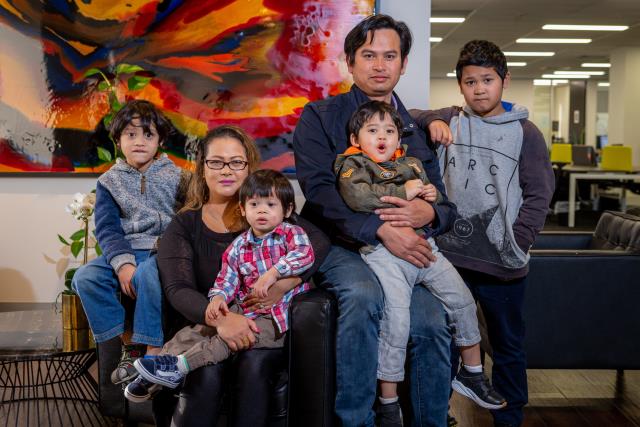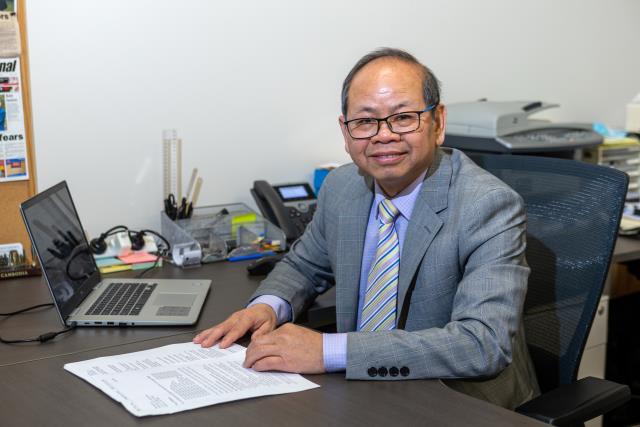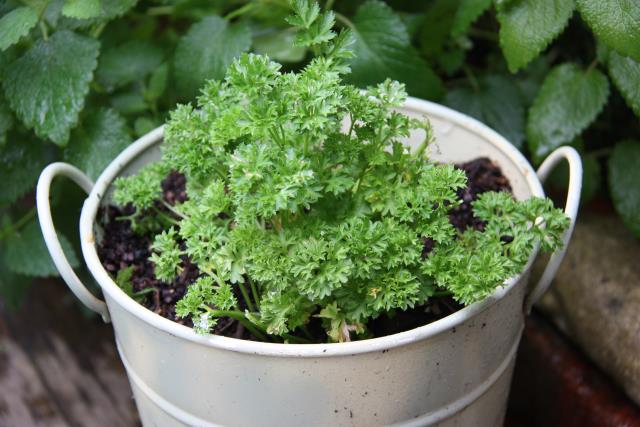A Doveton family is “jumping for joy” after winning their last-ditch legal fight to remain together in Australia.
Administrative Appeals Tribunal member Scott Clarey on 24 June ruled that asylum seeker Mr S. Seng met the criteria for a protection visa.
He ordered the matter should be “remitted for reconsideration”.
After six years of road-blocks, Mr Seng’s battle to stay with wife Tina and seven kids is back on track.
If he lost his tribunal appeal, he would have been deported back to Cambodia – which he fled after being seriously assaulted for his political beliefs.
Mr Seng arrived in Australia on a tourist visa in 2009. He married Tina, who has four children from a previous marriage, in 2014.
Tina and the children are all Australian citizens but were prepared to join their husband and dad in Cambodia, despite the dangers and risks of persecution.
So the tribunal win brought her both shock and relief. Her kids were “jumping for joy”, she says.
“I was thinking is this true? I just feel thankful that he’s now safe here and can feel at home in Australia.
“Australia is the best place to stay, where we can live a normal life without fear.”
Mr Seng’s application had been rejected three times by the Department of Home Affairs. The most recent blow was delivered by a Home Affairs Minister delegate in April 2020.
Some of the fault lies with his bungling, disinterested migration agents in the past, Tina says.
This time, migration agent Thayhorn Yim, led the case with advice from well-known human rights barrister Julian Burnside QC.
He says the evidence was “overwhelming” in Mr Seng’s favour, and likened the outcome to the ‘Biloela’ asylum-seeker family’s recent release from detention.
“It is great for Mr Seng and his family that they can now put the uncertainty of their future behind them,” Mr Yim said.
“They now can look forward to enjoying family time.”
A refugee must demonstrate a well-founded fear of persecution in their home country on the grounds of race, religion, political opinion, nationality or being a member of a particular social group.
They must be unwilling to return, and the local authority unwilling to offer protection.
Mr Clarey found that Mr Seng faced a “real chance of serious harm from the Cambodian Government” due to his political opinions.
“I am satisfied that Mr Seng is a person in respect of whom Australia has protection obligations.”
The member accepted that Mr Seng was assaulted and his business vandalized in Cambodia due to his political opposition.
And that he was violently assaulted at a party in Melbourne by a man making “politically-based threats”.
His attacker was sentenced for the assault at Dandenong Magistrates’ Court.
Mr Clarey noted there was no Australian Department of Foreign Affairs and Trade “country information report” for Cambodia.
But other sources noted the Cambodian Government “harshly represses political dissent”.
“Political dissidents and members of opposition parties can face arbitrary arrest, detention and violent attacks from the government and its supporters.”
The major opposition party the CNRP was dissolved by the Supreme Court of Cambodia, effectively turning Cambodia into a “one-party state”, Mr Clarey stated.








